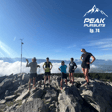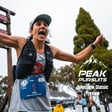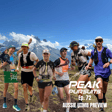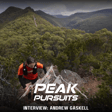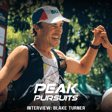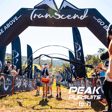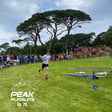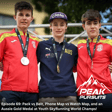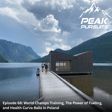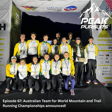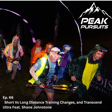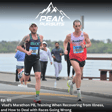
Mikey Dimuantes: Racing with the World’s Best at Canyons 100km
Mikey Dimuantes is back on Peak Pursuits after an impressive and gutsy performance at the iconic Canyons 100km.
Fresh off his race, Mikey joins us from sunny Santa Cruz to share all the gritty details of competing against a world-class field at one of trail running’s most competitive events.
In this episode, Mikey opens up about the highs and lows of his race day—running shoulder-to-shoulder with elite runners, navigating the relentless climbs and technical descents, and experiencing a sudden, challenging shift in the race at the 70km mark. We delve deep into what it takes physically and mentally to compete at this elite level and explore key insights on balancing peak fitness, fatigue resistance, and strategic risk-taking.
From running through snowfall to managing intense competition on unfamiliar terrain, Mikey discusses the crucial lessons learned, including his reflections on training load, pacing strategies, and race scheduling. Whether you're aiming for your own competitive peak or just fascinated by the mental and physical demands of ultra-running, Mikey’s candid race breakdown is packed with valuable insights and inspiring takeaways.
Tune in for an engaging, behind-the-scenes look at Mikey’s experience at Canyons 100km, his thoughts on Australian trail running’s global standing, and how he's approaching his upcoming season—including a major relocation to Turkey. This episode is a must-listen for anyone captivated by the grit, strategy, and heart that defines ultra-running at its highest levels.
***Don’t forget, use code PPP at Bix’s website for 20% off Bix products, exclusive to PPP listeners!***
Thanks for tuning in to Peak Pursuits! Connect with us on Instagram @peakpursuits.pod to share your thoughts, questions, and trail stories. Until next time, keep hitting the trails and chasing those peak pursuits!
Follow Mikey: Instagram | Strava
Follow James: Instagram | Strava
Music from #Uppbeat (free for Creators!):https://uppbeat.io/t/mood-maze/trendsetter
License code: K08PMQ3RATCE215R

